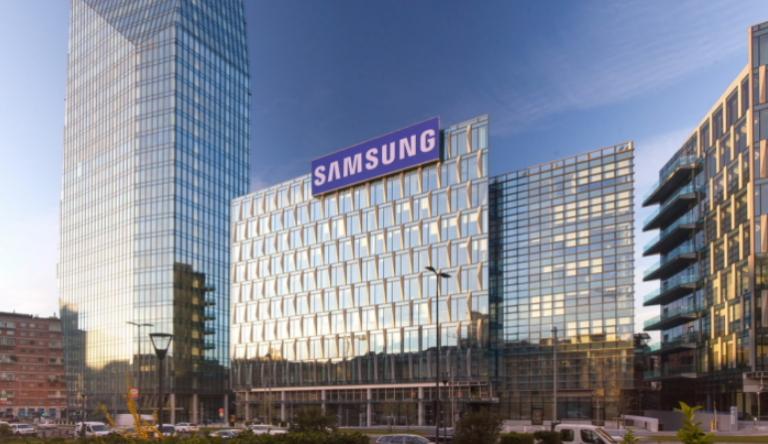 APPS
APPS
 APPS
APPS
 APPS
APPS
South Korean technology giant Samsung Electronics Co. Ltd. said late today that it expects to see a slow recovery in demand for memory chips in the coming year, after reporting its biggest quarterly profit in fiscal 2023.
The company said growing interest in devices that can power artificial intelligence workloads locally will boost demand for dynamic random-access memory chips in 2024. “PC and mobile demand is likely to benefit from the arrival of some replacement cycles for products,” it said in an earnings statement.
In the third quarter, Samsung reported an operating profit of 2.4 trillion won ($1.78 billion), with revenue down 12% to 67.4 trillion won. Although its profit is down 78% from a year earlier, it was much higher than it reported in the first and second quarters, when it recorded income of 640 billion won and 670 billion won, respectively. The results announced today were more or less in line with a preliminary forecast it provided three weeks ago.
According to the company, its semiconductor business posted a loss of 3.75 trillion won in the quarter, improving from a 4.36 trillion won loss three months earlier. The situation is improving as Samsung is focused on more profitable advanced chips for workloads such as AI, while reducing production of older and less powerful chips.
The $160 billion memory chip market has been hammered by an economic slowdown that has dampened demand for smartphones and personal computers, the most important products that use Samsung’s semiconductors. As a result, prices for memory chips have collapsed, forcing most chip manufacturers to reduce their investments in new capacity. Investors have been searching desperately for signs of a recovery in the market.
Now, though, things are looking more optimistic, Samsung executives said. They believe prices of memory chips will rise in the fourth quarter from the previous three months, as demand for AI applications grows. At the same time, manufacturers of computing devices have gradually reduced their chip inventories to levels low enough that they now need to start purchasing new components, analysts say.
Memory chip prices have already rebounded slightly in the quarter just gone, reflecting this improved demand. Samsung said evidence of this comes from its total factory output in South Korea, which rose for two straight months to cater to customer demand.
The renewed optimism means Samsung can now bolster its own spending plans. It said today it will allocate 53.7 trillion won on capital expenditure this year, which is a company record, above the 53.1 trillion it spent in 2022. Of that amount, 47.5 trillion won will be spent on the semiconductor business, compared to 47.9 trillion won in fiscal 2022.
Last week, Samsung’s South Korean rival SK Hynix Inc. said that it is also seeing increased demand for DRAM chips due to the AI boom.
Samsung’s share price barely moved in the hours after it posted its results, but the stock is up 22% in the year to date, showing investors share its growing optimism for an uptick in fortunes.
Elsewhere, Samsung’s mobile device business booked a 3.3 trillion won operating profit, just above the 3.24 trillion won profit it reported a year earlier. During the quarter, Samsung launched a new range of premium foldable smartphones, boosting sales in what remains overall a sluggish market.
The company’s display business also benefited from the launch of flagship smartphones, including Apple Inc.’s iPhone 15, recording a 1.9 trillion won operating profit.
Support our mission to keep content open and free by engaging with theCUBE community. Join theCUBE’s Alumni Trust Network, where technology leaders connect, share intelligence and create opportunities.
Founded by tech visionaries John Furrier and Dave Vellante, SiliconANGLE Media has built a dynamic ecosystem of industry-leading digital media brands that reach 15+ million elite tech professionals. Our new proprietary theCUBE AI Video Cloud is breaking ground in audience interaction, leveraging theCUBEai.com neural network to help technology companies make data-driven decisions and stay at the forefront of industry conversations.